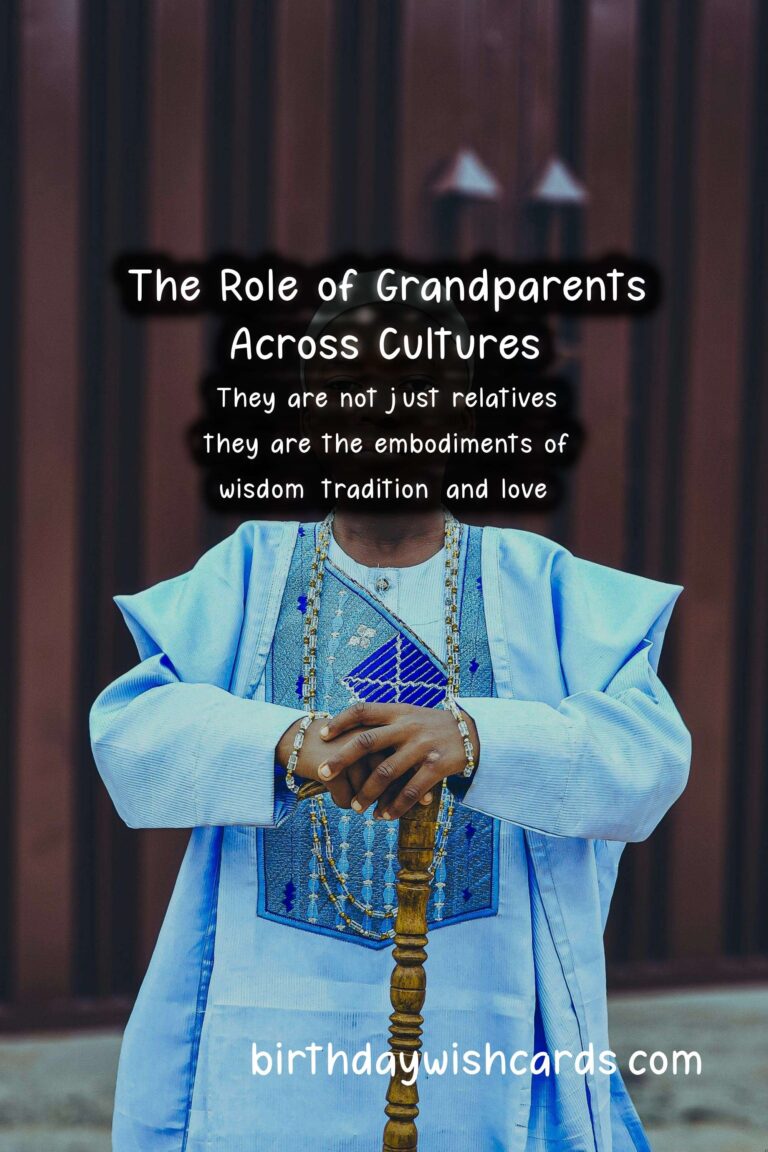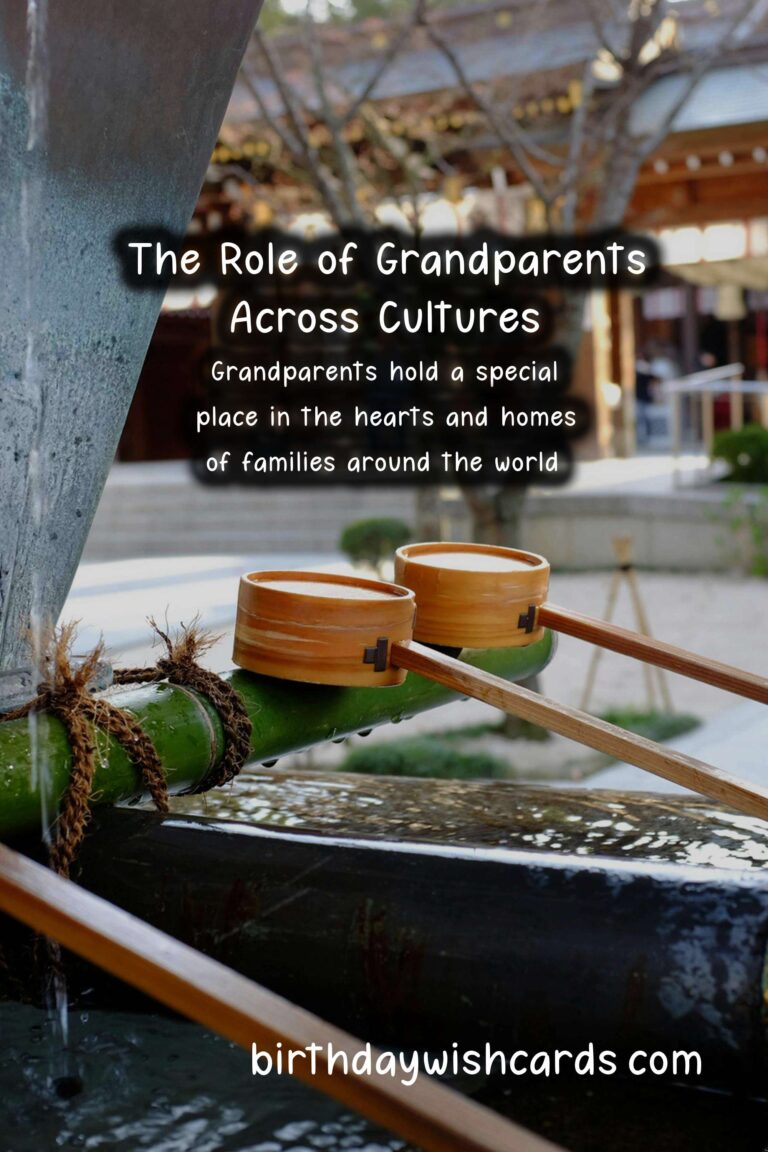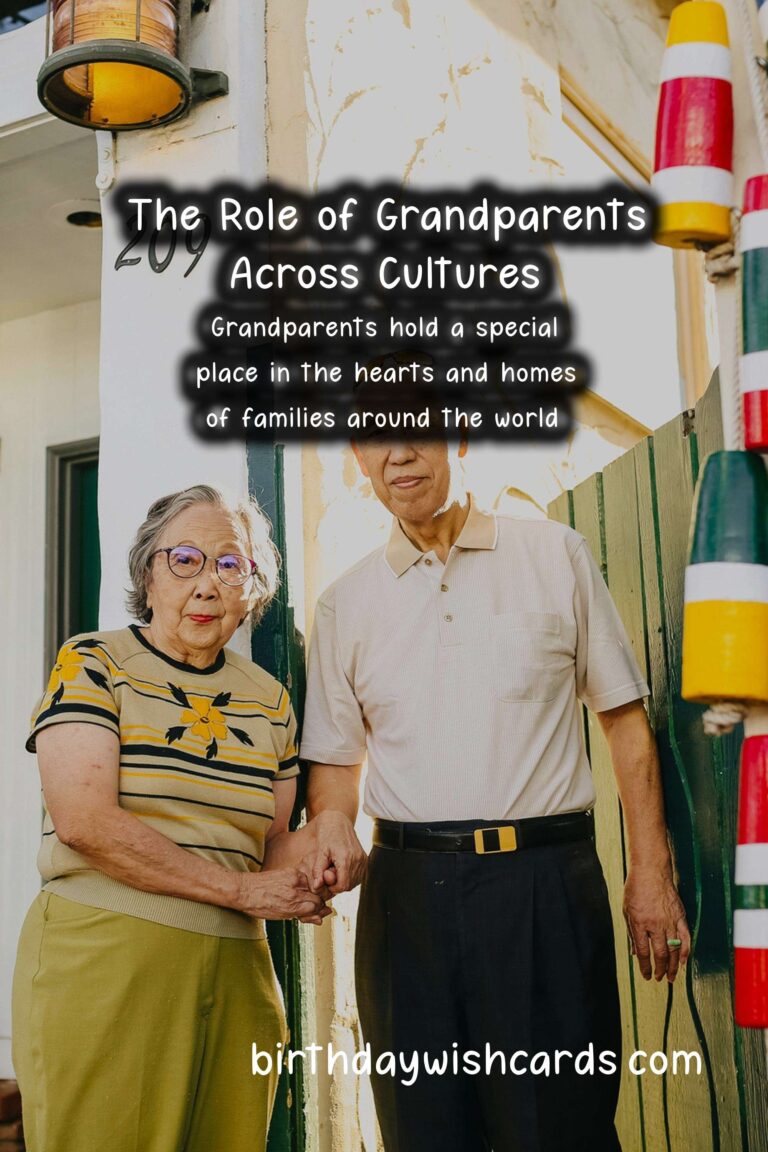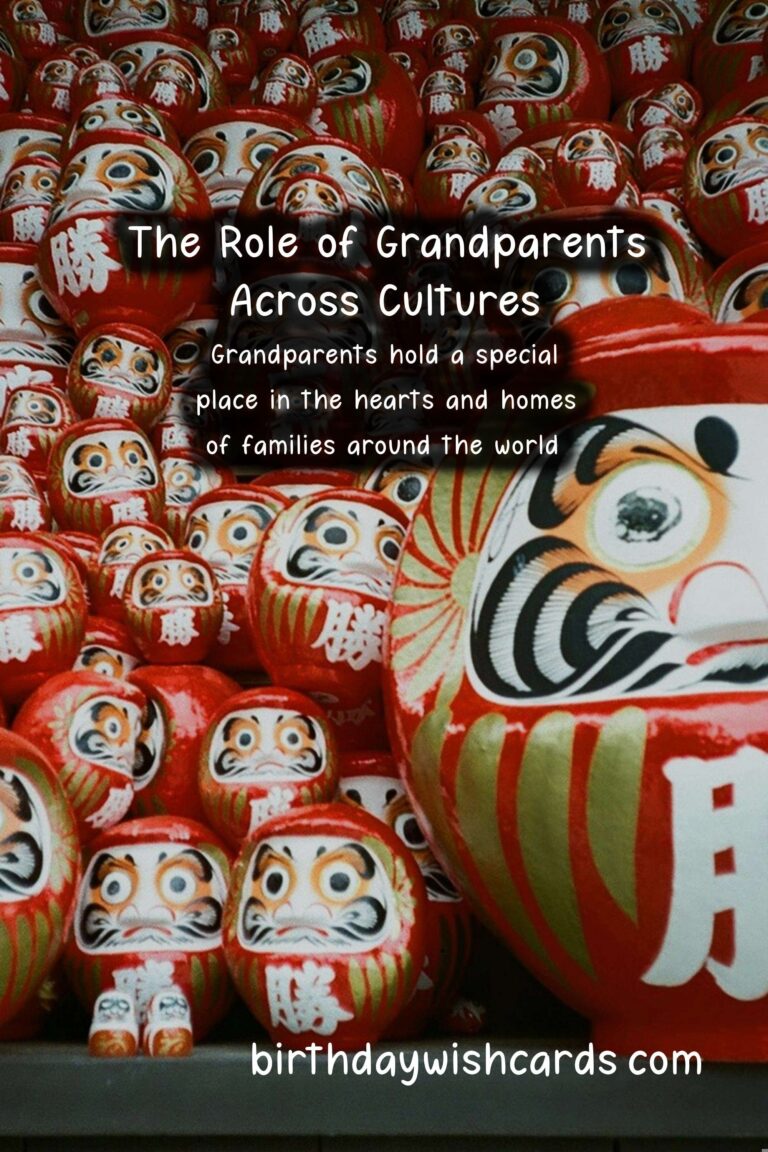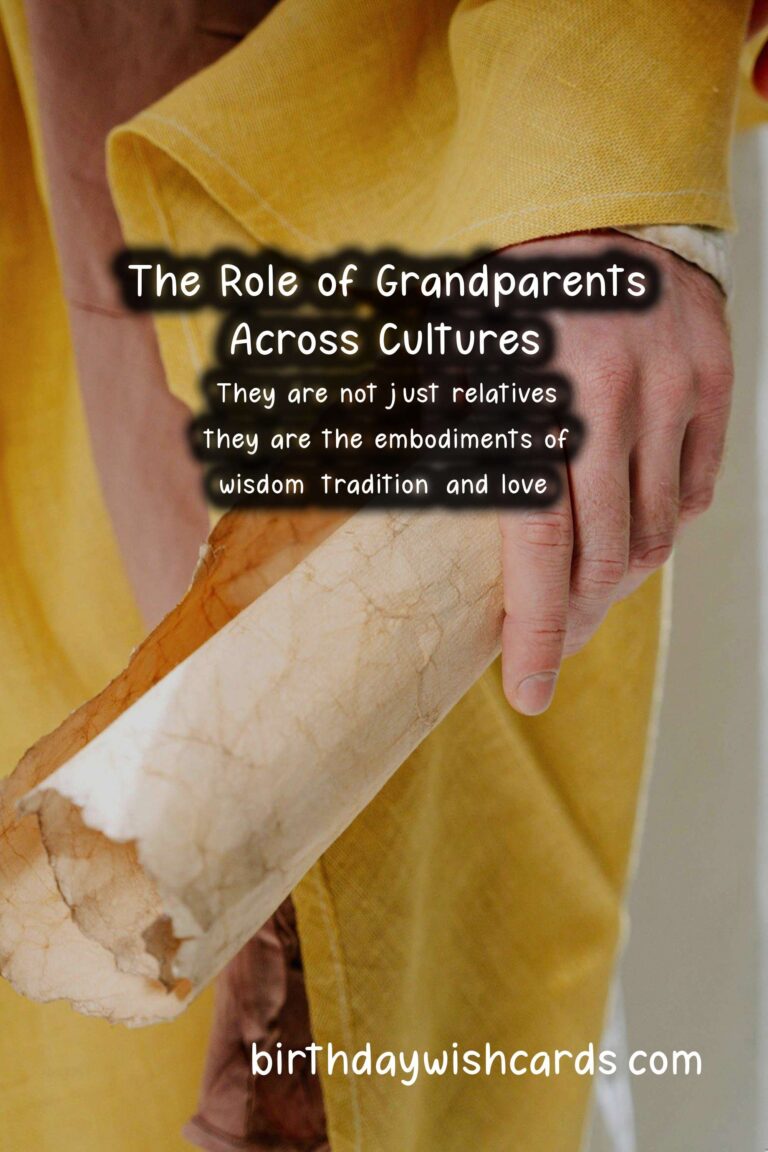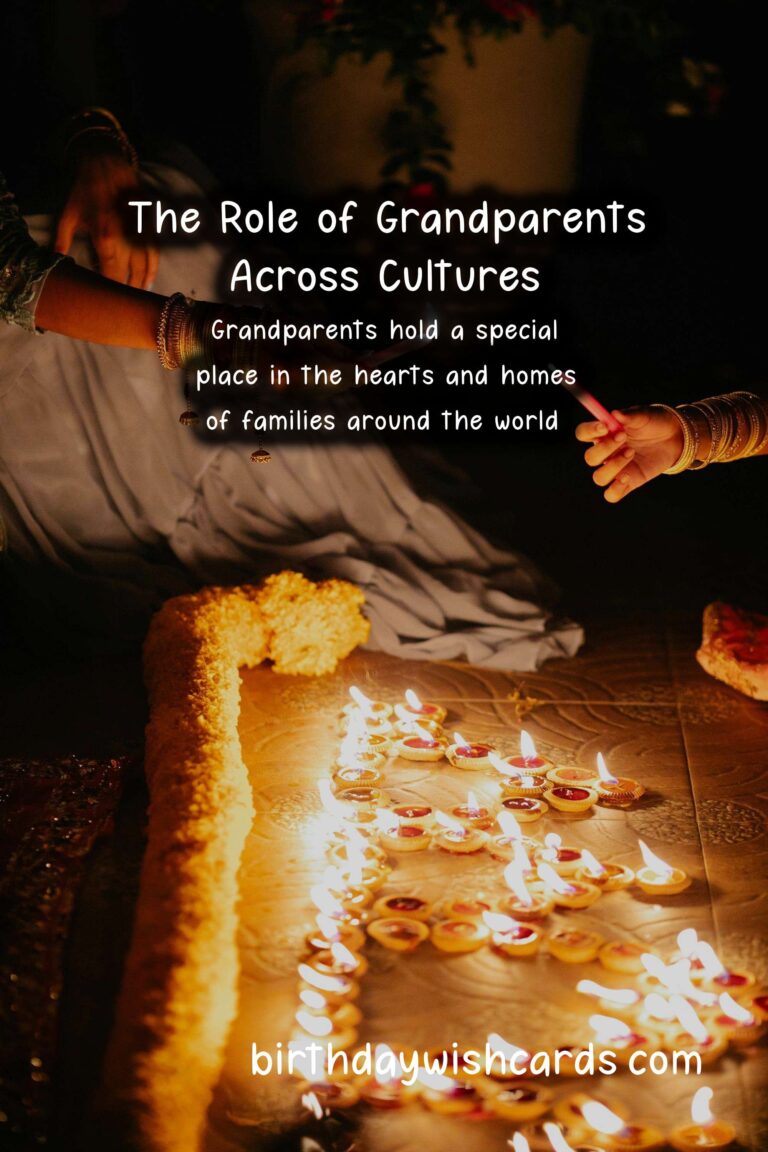
Grandparents hold a special place in the hearts and homes of families around the world. They are not just relatives; they are the embodiments of wisdom, tradition, and love. In this article, we explore the importance of grandparents across various cultures, highlighting the invaluable roles they play in shaping familial bonds and societal values.
1. Grandparents as Custodians of Culture
In many cultures, grandparents serve as the primary custodians of traditions and cultural heritage. They pass down stories, rituals, and values that define a community’s identity. For instance, in Indigenous cultures, elders are revered as the keepers of history. They share oral traditions with younger generations, ensuring that their cultural heritage remains alive.
2. The Role of Grandparents in Family Dynamics
Grandparents often take on multifaceted roles within family structures. In some families, they provide crucial support by helping to raise grandchildren. For example, in many Asian cultures, it is common for grandparents to live with their children and assist in childcare. This practice not only strengthens familial bonds but also fosters a sense of security and stability for the children.
3. Emotional Support and Guidance
Beyond material and childcare assistance, grandparents provide emotional support and guidance. Their life experiences allow them to offer a unique perspective when it comes to resolving conflicts or making significant life decisions. For many individuals, a grandparent is a trusted confidant with whom they can share their thoughts and feelings.
4. The Influence of Grandparents on Values and Morals
Grandparents often instill values and morals in their grandchildren. In many cultures, teachings about respect, responsibility, and compassion are transmitted through intergenerational interactions. For instance, in Western societies, grandparents frequently play a role in teaching grandchildren about the importance of family values and the significance of ethics and honesty.
5. Examples from Different Cultures
5.1 The Latin American Perspective
In Latin American cultures, the concept of ‘familismo’ emphasizes the importance of family ties and loyalty. Grandparents are considered essential members of the family unit, often contributing to caregiving and nurturing. Their presence is viewed as a blessing, and family gatherings typically include the entire extended family.
5.2 The African Tradition
African cultures often hold grandparents in high esteem, recognizing their vital role in the upbringing of children. Grandparents are seen as providers of wisdom and guidance, often influencing the moral development of younger generations. In many communities, traditional storytelling is a common practice, allowing grandparents to impart lessons through folktales.
5.3 The Asian Influence
In Asian cultures, particularly in countries like China and India, the role of grandparents is deeply integrated into family structure. Respect for elders is ingrained in societal norms, and grandparents often play a significant role in decision-making processes and familial responsibilities.
5.4 The Western View
In Western societies, grandparents contribute significantly to the emotional and psychological well-being of their grandchildren. They often provide a nurturing space where children can express themselves freely, away from their parents’ expectations.
6. Grandparents and Modern Society
In contemporary society, the role of grandparents has evolved. With more parents working and pursuing careers, many grandparents step in to help with childcare. This shift has led to what is often called the ‘sandwich generation,’ where grandparents play an active role in raising grandchildren while also caring for aging parents.
7. Challenges Faced by Grandparents
Despite their significance, many grandparents face challenges such as health issues, financial constraints, and the emotional strain of being caregivers. Additionally, the societal changes brought by modernization have led to fewer families living in multigenerational households, making it more difficult for grandparents to maintain close relationships with their grandchildren.
8. The Future of Grandparenting
As we progress further into the 21st century, the roles of grandparents may continue to evolve. The increasing use of technology may offer new ways for grandparents to connect with their grandchildren, bridging the generational gap. Virtual communication tools allow for storytelling, sharing traditions, and maintaining close ties, even from afar.
Conclusion
Grandparents are vital to the fabric of many cultures, serving as the link between generations and the keepers of wisdom and tradition. Their influence is profound, shaping values, providing emotional support, and ensuring the continuity of cultural practices. Recognizing the importance of grandparents encourages us to cherish and uphold the bonds that matter most in our families.
Grandparents hold a special place in the hearts and homes of families around the world. They are not just relatives; they are the embodiments of wisdom, tradition, and love. 


